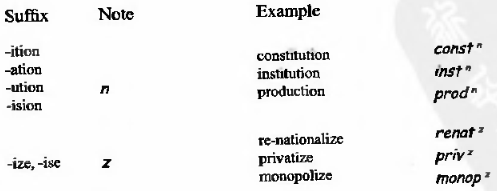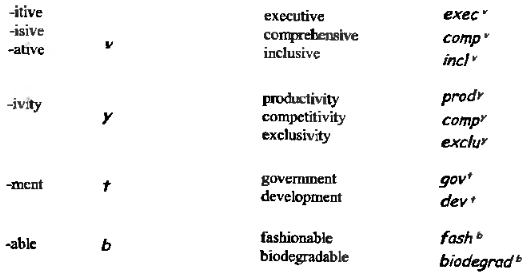- 签证留学 |
- 笔译 |
- 口译
- 求职 |
- 日/韩语 |
- 德语
Don't write out long words in full in your consecutive notes, you don't have time. Take the first few letters of the word and some part of the end of the word raised. The following brief extract says it all.
The rule of thumb is that unless a word is short (4-5 letters) the interpreter should note it in an abbreviated form.
If we have to note "specialized" it is more meaningful and reliable to note sp(ed) than to write spec.
Other examples:
Stat. could be read as "statute" or "statistics" whilst State and Stace are unambiguous.
Prod. could be read as "production", "producer", product" or "productivity" while Pron, Prer, Pret. Prvity are unambiguous.
Com. could be read as "Commission" or "committee" while Cionand Ctee are unambiguous.
Rozan, 2003:11 [1956:9]
In every language there are suffixes which many different words share. Some English examples are noted below. Many of these will also apply to the Romance languages. If you are noting in German or Polish then some abbreviation for the common endings "-ung" and "-owošé" might be a good idea.


If these abbreviations don't correspond to your language, use the same technique to create some that do.
Phonetic spelling and misspelling
Another way of abbreviating is to spell words phonetically rather than correctly.
责任编辑:admin
